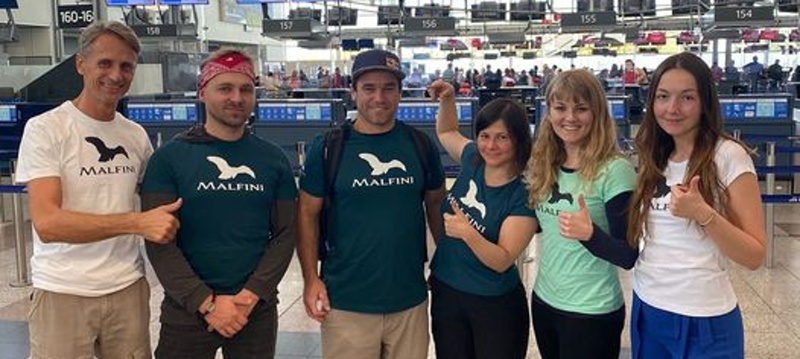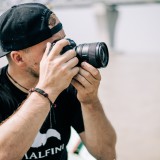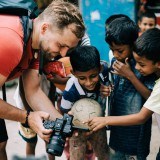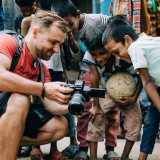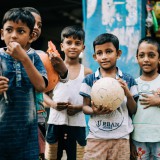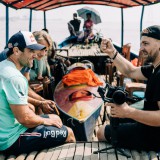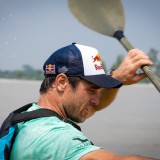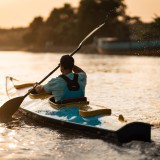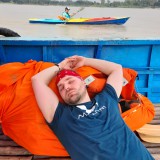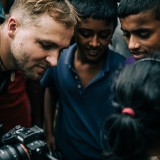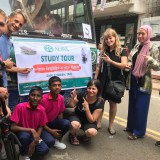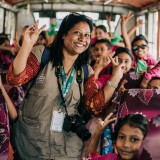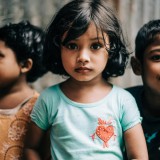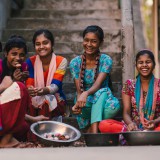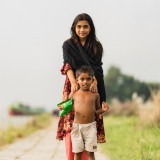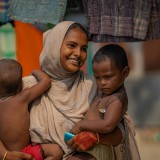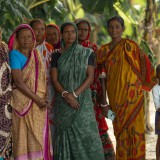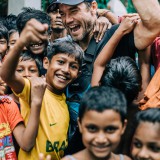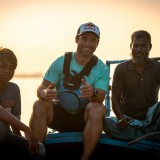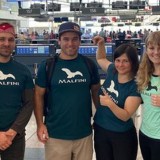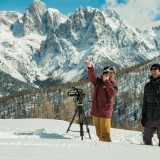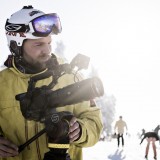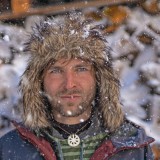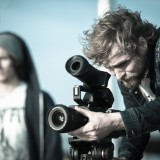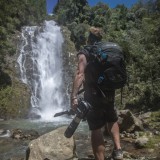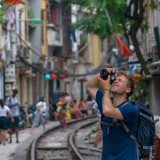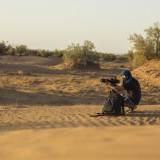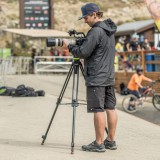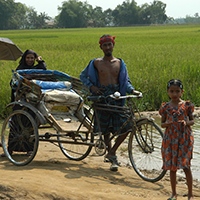Martin Vrbický: Traveling Cameraman
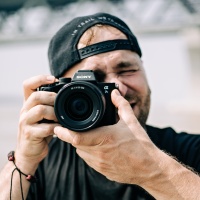
Martin Vrbický, a seasoned cameraman and producer, made a beautiful documentary of the charity Ganga Expedition 2022. In the recent interview, Martin delved into the intricacies of his profession, shared his fascination with Bangladesh, and revealed the art of mastering sleep amidst unpredictable schedules.
Martin, you are a former athlete, cameraman, producer, and a member of the Ganga Expedition team. Could you please introduce yourself to us?
I film. My livelihood is the camera. For the last 15 years. And if I took a detour, I got into the camera through sports.
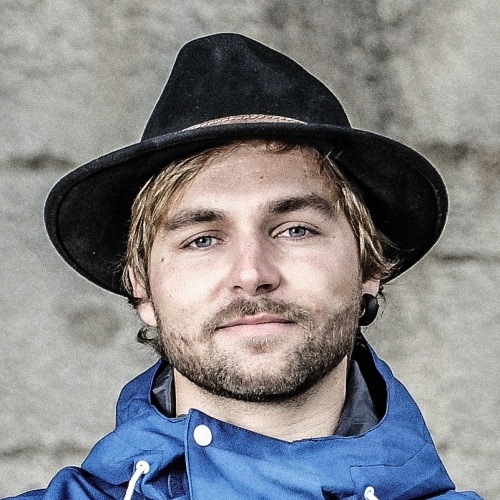 I used to ride a mountain bike and was into freestyle skiing. It was about tricks. It wasn't about racing the track as fast as possible. The aesthetic aspect was important, the overall expression of movement. And I enjoyed taking photos and shooting. Capture that moment, the biggest stretch of that trick. And then make what's called an edit. A profile, a short video where a person shows off what they can do. It's a world of its own.
I used to ride a mountain bike and was into freestyle skiing. It was about tricks. It wasn't about racing the track as fast as possible. The aesthetic aspect was important, the overall expression of movement. And I enjoyed taking photos and shooting. Capture that moment, the biggest stretch of that trick. And then make what's called an edit. A profile, a short video where a person shows off what they can do. It's a world of its own.
Over time, filming prevailed over sports because I found that it's safer to stand by the tripod than to attempt somersaults. And honestly, I think I was better at it than sports itself. So that's why I decided to stay behind the camera.
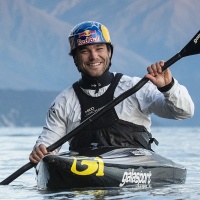 And then I started studying the camera. At that time, the internet came, internet television, and for many media, video became essential. So even during my studies, I knew that there would be a demand for cameramen, that I could make a living from it. And I also started to focus more on traveling, which has always attracted me. Today, I manage to combine my profession with traveling.
And then I started studying the camera. At that time, the internet came, internet television, and for many media, video became essential. So even during my studies, I knew that there would be a demand for cameramen, that I could make a living from it. And I also started to focus more on traveling, which has always attracted me. Today, I manage to combine my profession with traveling.
And thanks to the camera and traveling, you also got to Bangladesh.
Yes, it was a very pleasant coincidence. I've known Vávra Hradilek for many years, and we had never really shot anything together except for exceptions. And Vávra called me and said it was time for us to make a film together. "I'm going to Bangladesh in a month, come with me." And I didn't really know what it was about. I told him, "Sure, I've never been anywhere with you." I had never been to this part of the world, so it was enticing for me as well.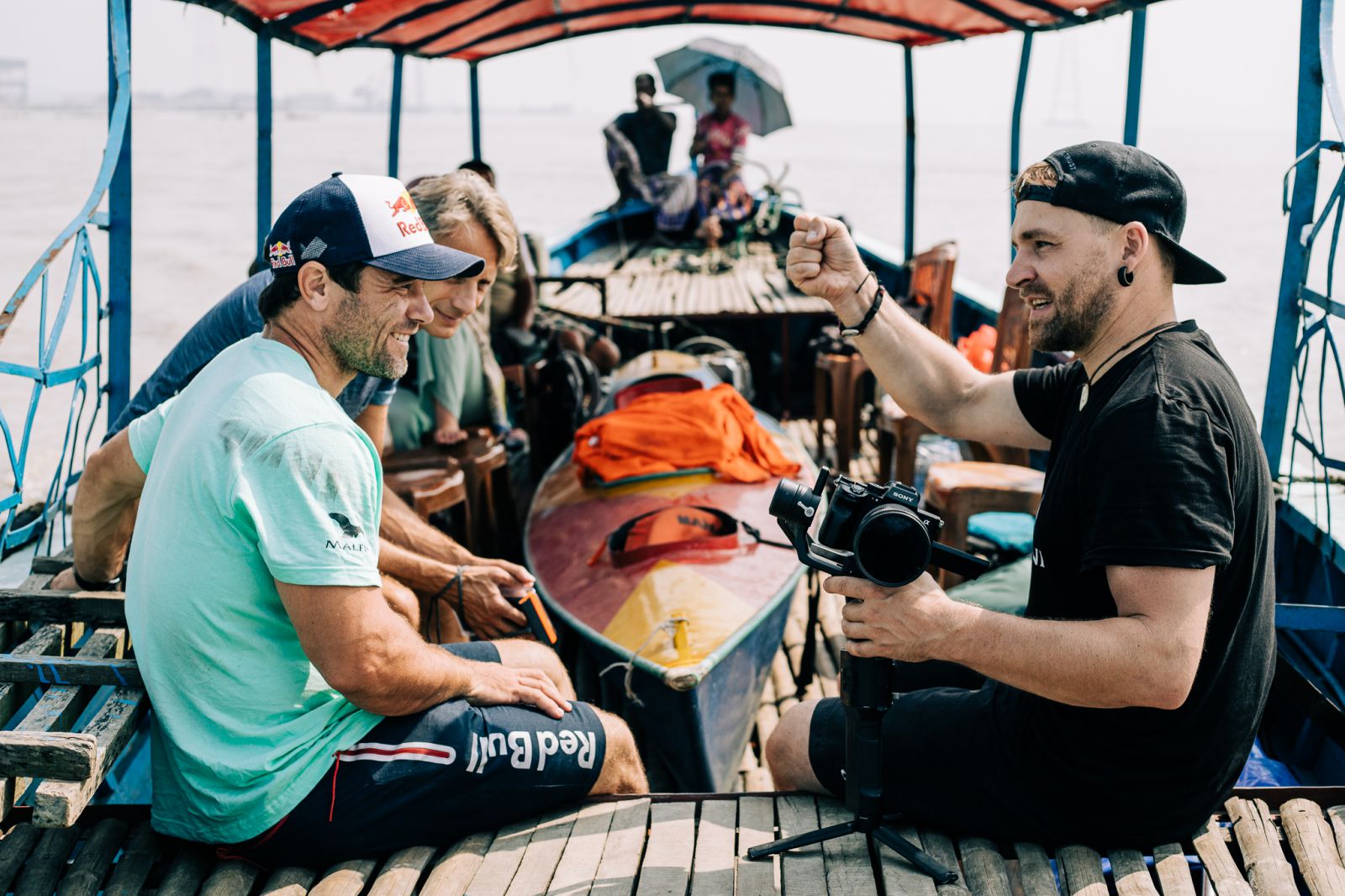
What made Bangladesh unique for you? After all, besides Australia and Antarctica, you have traveled to over 50 countries.
I had no experience with this corner of the world, the Indian civilization circuit. I had never been to India. I had never been to Nepal or Bangladesh. So Bangladesh was unique for me.
The capital Dhaka was like an intensified Jakarta or intensified Manila where I had been. I expected it to be a bit worse, and it was a bit worse. Simply more people, more stress, more waste, greater poverty. But I kind of imagined it, so it didn't completely surprise me.
But the countryside surprised me. It seemed totally picturesque, so "untouched," and I didn't expect that. I didn't expect to find such an untouched landscape in Bangladesh.
And I also thought that in Bangladesh, Western aid would work much better. That there would be really organized thoughtful aid. But we didn't come across that. So that actually surprised me, that there aren't more organizations working there.
.jpg)
When we were in the slum, among many poor people, Vávra at one point said that it was too much for him. That he needed to take a break, be alone for a while, and absorb it all. How about you and the slum?
I knew we were going to the slum, among the poorest people, and we would see things associated with it. And I somehow connected it with the experiences I had from slums in South America, for example. I just expected it to be like that. And it was. It wasn't different.
Martin, you made a beautiful travelogue of the Ganga Expedition. How was its creation?
The script of travelogues is created by the journey itself. You never know what will happen. It's very spontaneous.
I film what's happening. At the same time, I always keep in mind the progress of filming. What shots I already have, what's missing, what needs to be shot, and how to connect different situations in post-production. It's good to have more material and even have more variants of connecting those segments. And then it all comes together in the editing.
During the journey, we experienced dragon boat races, where there were about 100,000 fans along the shores, on the road, and on the bridge across the river, and at least 1,000 on boats in the water.
.jpg) It was enormous! Especially because we didn't expect it. Suddenly we emerged there and became part of something extraordinary, without any planning.
It was enormous! Especially because we didn't expect it. Suddenly we emerged there and became part of something extraordinary, without any planning.
Those races happen, I don't know how many times a year, it's not an everyday thing. So it was very enjoyable. And the number of people, it was unbelievable. Someone from Europe doesn't have a chance to experience something like that. Maybe at a football match. But it probably corresponds to the concentration of people living by the river in Bangladesh. It was huge. Very nice to experience and see. It was colorful, human, totally surprising.
Martin, one thing that intrigued me about you is that you can fall asleep anytime, anywhere – on a plane, in a car, on a motorboat. Anywhere, even in the middle of the day. You're shooting, then you pack up, lie down, and sleep. How did you learn that? Do you have any know-how that insomniacs could use?
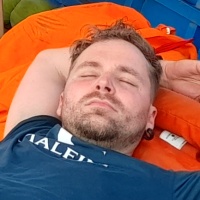 It's a gift. I just take naps. When something is demanding, whether mentally or physically, I save time, for example, during car transfers. If there's nothing interesting outside, I save all my time by sleeping immediately. I fall asleep within a minute if I want to. It's great; that's how I replenish my energy.
It's a gift. I just take naps. When something is demanding, whether mentally or physically, I save time, for example, during car transfers. If there's nothing interesting outside, I save all my time by sleeping immediately. I fall asleep within a minute if I want to. It's great; that's how I replenish my energy.
Do you just close your eyes and sleep? Or do you have a ritual?
Some shootings were really extremely demanding. For example, in Dakar. You sleep for 3 hours, then drive for 5 hours, and then you need to use every half hour. It was a necessity there. You delay it all day, and when the opportunity comes, you take advantage of it. So I probably learned it during these challenging expeditions.
How does this ability to fall asleep anytime and anywhere help you in your work?
It helps. Because then, for example, at night, I don't need to sleep for 7 hours, just 3 hours. I can break down my sleep like this. But of course, it can sometimes be a disadvantage. For example, when I drive for a long time, I feel that it affects me, and I need to take a nap, maybe at a gas station, for half an hour. That also happens to me.
What do you enjoy most about your work?
%20(1).jpg) So, two things delight me about it. I enjoy making the shot. As a younger person, I drew and painted, and the camera makes it easier for me – to create a beautiful picture. That's the first thing.
So, two things delight me about it. I enjoy making the shot. As a younger person, I drew and painted, and the camera makes it easier for me – to create a beautiful picture. That's the first thing.
And from the other side, I just enjoy traveling. That it's diverse, that it brings me into different situations, among different people, to different parts of the world, which is simply priceless.
For example, here in Bangladesh – those 10 or 11 days here give a person more than reading books for 11 days. The experience is intense, and you have a chance to take something away from it. So, I enjoy the partial shot, and I enjoy that the job brings me into interesting situations, among interesting people.
Is there a particular topic that interests you during your travels?
I'm most interested in local culture – people, customs, architecture, nature. This is related to what makes it different from us.
And when you travel like this, do you like coming back to the Czech Republic, or do you already think your home is somewhere else?
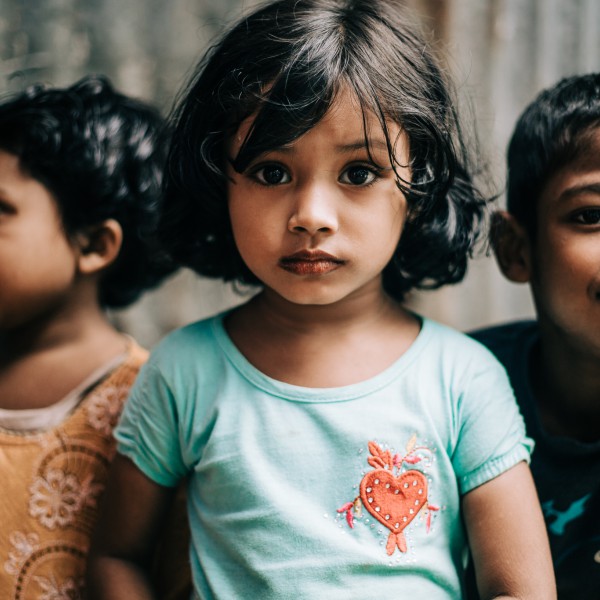 Definitely not. The more I travel, the more intense a relationship I have with home. I know how things work here. I know what to expect. It's calm. There are certainties. Home is like an anchor.
Definitely not. The more I travel, the more intense a relationship I have with home. I know how things work here. I know what to expect. It's calm. There are certainties. Home is like an anchor.
Whatever happens anywhere, floods, hurricanes, attacks, etc., you know that in the Czech Republic, we have four seasons, cheap beer, beautiful countryside; we have safety. We have cleanliness here, and that's a very pleasant place to live. Well, I wouldn't change it.
And we also have a health, social, and pension system. And that's great. Peaceful, safe, homey. You just go to a pub, have a snack with cabbage, and you know what you're getting into, you don't have to speculate. :)
When you saw children and people living in the slum in Bangladesh, what would you wish for them?
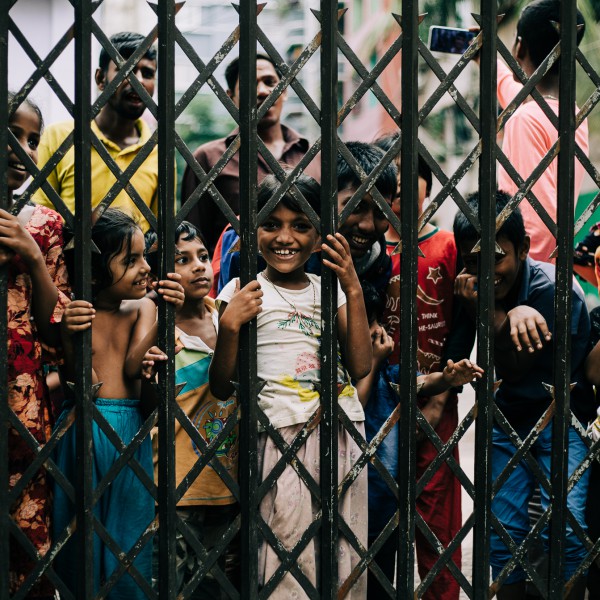 What would I wish for them? They actually seemed quite happy. So the question is whether we shouldn't take something from them. They don't seem to be in stress. But, of course, they lack a lot of things there.
What would I wish for them? They actually seemed quite happy. So the question is whether we shouldn't take something from them. They don't seem to be in stress. But, of course, they lack a lot of things there.
What to wish for them? What will help them? Education. That's simply crucial. From that, things follow that are related to education. Healthcare and, of course, decent wages. But I think what would help them the most is education. So, quality education.
Thank you for the interview and the great collaboration. The BanglaKids team and Čalantika wish you a lot of comfort on all your future journeys.
